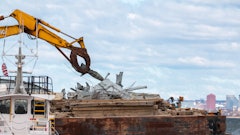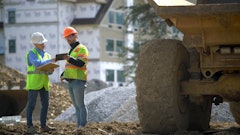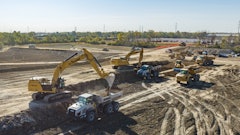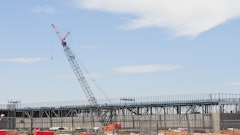Several hundred years ago, William Shakespeare wrote his famous play, King Henry VI, in which he included the line "First thing we do, let's kill all of the lawyers." While this line has become a famous quotation and is often thrown about in some misguided attempt at cocktail party humor, it is an unfortunate milepost for the disdain held by society for its lawyers.
In Pakistan, right now, President Pervez Musharraf is encountering a vociferous backlash from the citizens of Pakistan and this backlash is being led by lawyers. These lawyers - the ones Shakespeare wanted to kill - are attempting to preserve a sense of order in Pakistan and, unfortunately, many are being imprisoned or hurt for their efforts.
In the world of concrete, there are certain immutable laws. For instance, cement, when combined with aggregate and water, will form concrete. Another rule is that concrete cracks. A third one is that there will be disagreements between owners and contractors and suppliers. This is the nature of the construction industry and is so pervasive that countless people, including myself, earn their living based upon these disagreements.
Beyond that, though, there are several immutable laws that are frequently taken for granted. For instance, when an owner and a contractor sign a contract for a new project, both sides expect the other to live up to their end of the bargain. A corollary to that concept that is when one party fails to live up to its end of the bargain, there are modes of redress. If a contractor fails to perform work in a good and workmanlike manner, or if an owner fails to pay the contractor, there are available avenues to force the uncooperative party to act. If a contractor orders a batch of concrete with the express instruction that it comply with a certain mix, the supplier is duty-bound to send the batch in compliance with that mix.
When people fail to meet certain expectations, those who are harmed by it can turn to their advocates - their lawyers - and seek to enforce their rights. The enforcement of these rights may involve negotiations, but they may also involve arbitration or litigation in the judicial system. But, in the end, every owner, contractor and supplier in United States of America can go to bed at night, comfortable with the thought that there are procedures and methods available to provide protection for their businesses and their interests.
President Musharraf has stripped every Pakistani business owner, concrete contractors included, of these comforts. He has suspended and cancelled many of the rights that we, as Americans, hold dear:
- the protection of life and liberty;
- the right to free movement;
- the right of detainees to be informed of their offense;
- the right of detainees to access lawyers;
- the protection of property rights;
- the right to assemble in public;
- the right to free speech;
- the equal rights for all citizens under law; and
- the freedom of the press.
Imagine how difficult it would be to engage in business if these rights were not available to you. Would an owner commence a project knowing that the owner's ownership interest in the property may be taken at a moment's notice -- without any ability to seek redress? Would a contractor agree to provide labor and materials for a job knowing that the owner may not be around at the end of the job to pay the contractor? Would the supplier provide concrete to a contractor with the flimsy hope of being paid once the truck pulls out of the yard?
In Pakistan, President Musharraf declared a state of emergency and suspended the outstanding Constitution. He fired most of the judges in judicial system and arrested the Chief Justice of the Pakistani Supreme Court. He also shut down independent news stations and sent the military in the streets to keep peace. As a result of this conduct, Musharraf has been widely criticized and protests have been led by the lawyers across the country.
The relevance of the lawyers role in these protests is that they recognize the importance of the Rule of Law. The Rule of Law is what allows us, as Americans, to conduct business. The Rule of Law is what ensures that owners will pay contractors and that contractors will pay suppliers. The Rule of Law is what ensures that contractors will work on safe job sites. The Rule of Law is what ensures that suppliers will provide the mixes they are supposed to provide.
In Pakistan, the Rule of Law no longer exists and anarchy is just a stone's throw away.
While the protestors in Pakistan have encountered is resistance to the military including widespread arrests and injuries, they have not given up their protests of the abolition of the Constitution in Pakistan. They recognize that the Rule of Law is what holds the society together and allows it to function.
How do protesting lawyers and a tyrannical dictator effect the concrete industry in America? The answer is that they probably do not. However, it should serve as a reminder to every citizen of the importance of our Rule of Law. While it is easy to place the blame for societal ills upon those who work within the system, it is also the system itself (and those who work within it) that allows the American economy to thrive. Lawyers are the cogs in the wheel that is the Rule of Law and without lawyers, any businessman, be it the owner, contractor or supplier, would see his business crumble if not for good and competent lawyers.
The next time you are involved in a disagreement on a job site, step back and be thankful that we live in a society where you have the ability to decide to disagree and the ability to protect your position. Then, think of those in Pakistan who do not have those abilities.


























